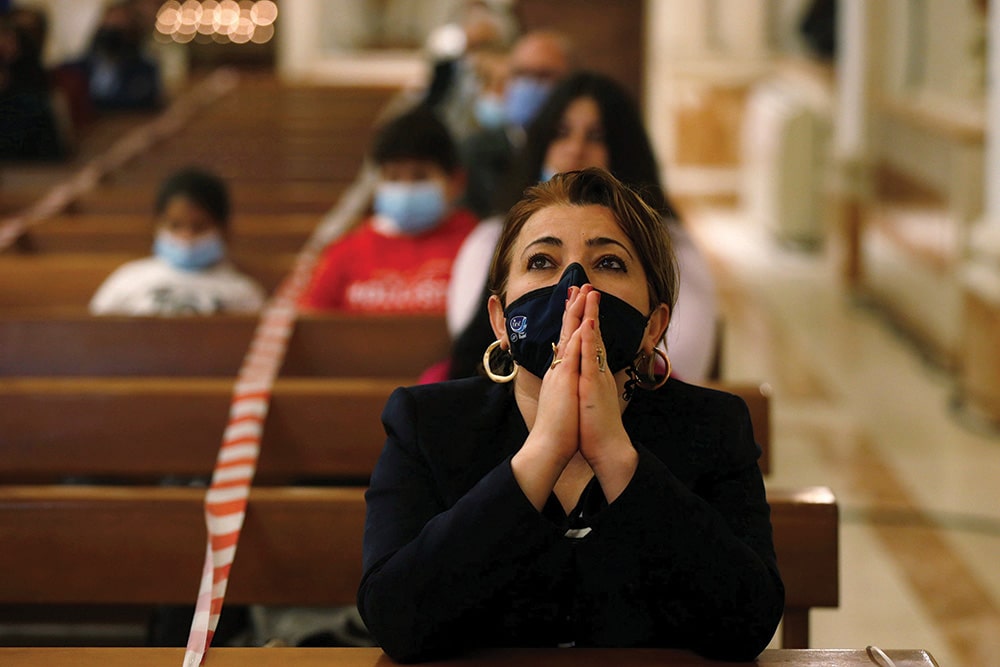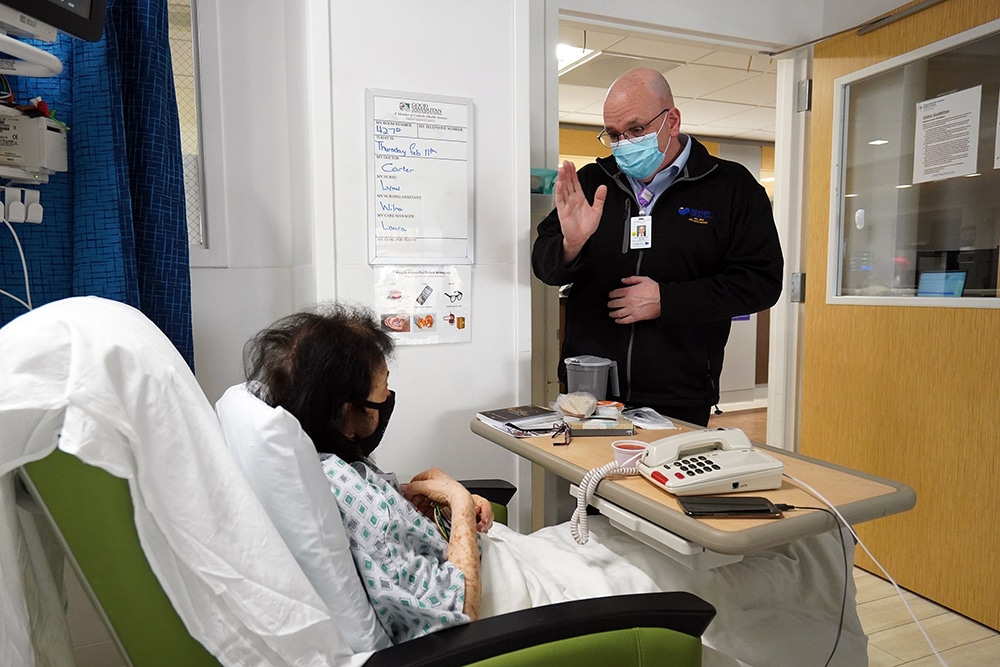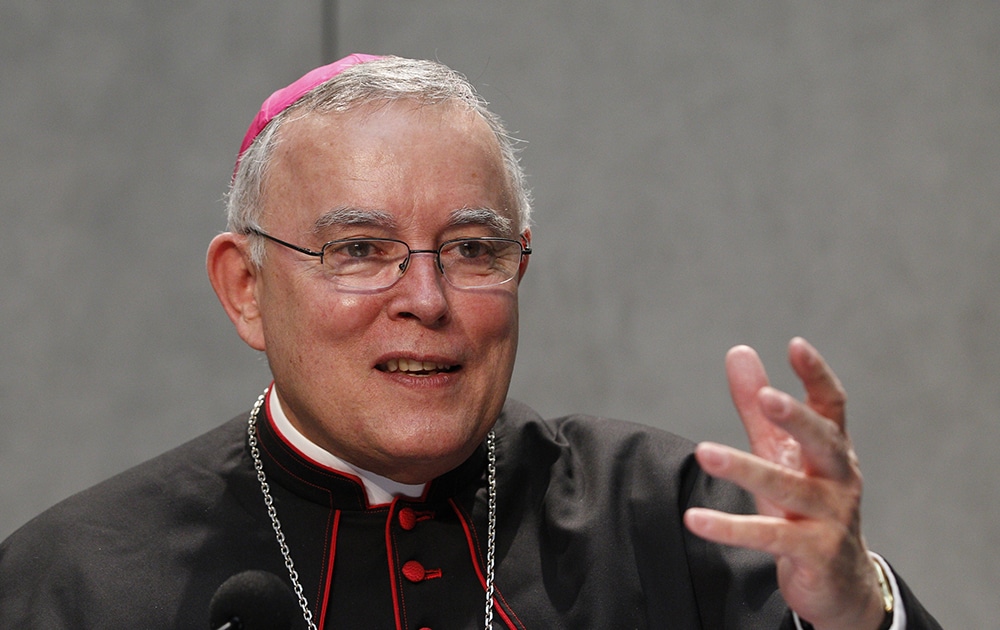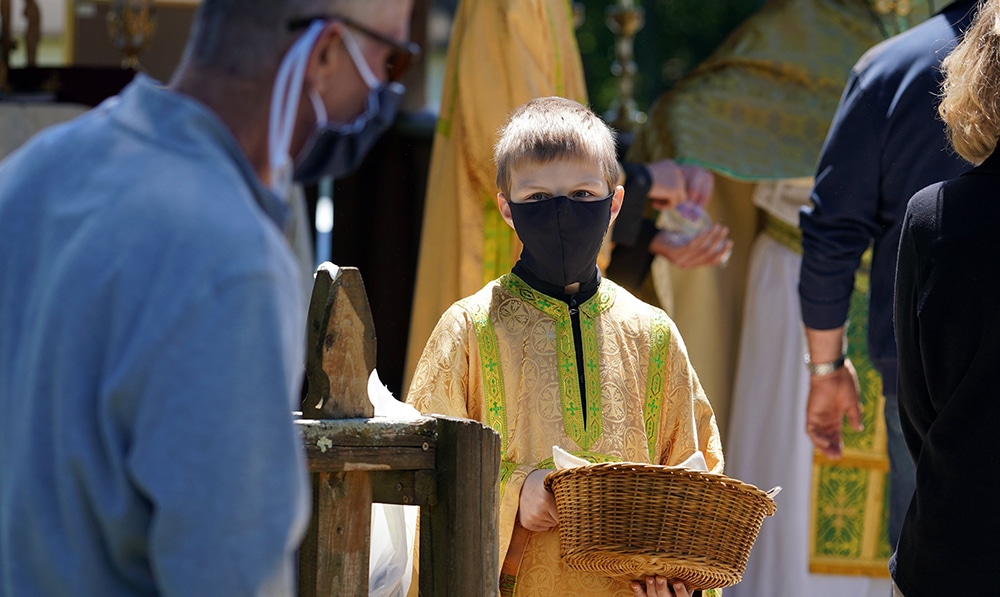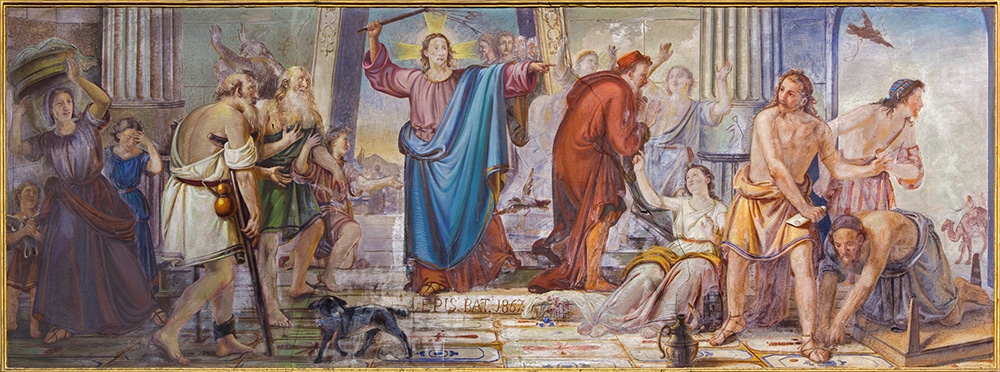How has it been a year?
On March 11, 2020, the World Health Organization declared COVID-19 a pandemic, saying it was “deeply concerned by the alarming levels of spread and severity.” Two days later, those of us in the United States were under a national emergency. One by one, dioceses began an unprecedented cancellation of all public Masses to help slow the spread of the disease. On March 27, Pope Francis led the world in prayer, offering an extraordinary “urbi et orbi” blessing while holding the Blessed Sacrament.
In the weeks and months that followed, we have lost more than 500,000 people to the disease in the United States alone. During this difficult year, we have learned much about our priorities, about our communities and about what it means to love. Here are five of those lessons.
1. Families need more time together. As the nation shut down, activities were canceled and lives were in limbo, families suddenly found themselves spending a whole lot of quality time together. Forts were built, movie marathons were watched, bread was baked, and every night was family dinner night. And did we ever need it. All too often, familial relationships take a back seat to any other number of “priorities” that consume our lives. But families — the first cell of society and that place where the Faith is first shared — need to be nurtured and strengthened regularly and intentionally, and the pandemic reminded us of that.
2. We need our parish communities. Centered around the Eucharist, parish communities are essential to the Christian life. In the absence of physical togetherness this past year, video technology was used to bring together groups for religious education, Bible studies and other ministries. Some parishes adopted phone call outreach to parishioners. Man was not made to be alone, and the pandemic reminded us of the importance of community — even if it looked a little bit different.
3. The Church shouldn’t be afraid of technology. Parishes have known for years that digital communication via websites, email and text messaging can be greatly beneficial to their mission. The same is true for online giving, a proven effective and reliable way for parishioners to handle stewardship. But while some were quick to adopt, others, usually because of a lack of resources or know-how, lagged behind. Nothing is a better motivator than a crisis, however, and parishes soon learned they had nothing to be afraid of as they became adept at livestreaming, providing their flocks with regular digital updates, and offering new ways to pass the collection basket.
4. We should not take the sacraments for granted. For many weeks, public Masses were canceled and access to the sacraments was greatly limited. Many, especially the vulnerable among us, continue to livestream Masses and make spiritual communions. During this time of absence, we learned not to take the sacraments — especially the Eucharist — for granted, but to always be grateful for these great graces and gifts from God.
5. Charity is our guiding force. St. Paul tells us that faith, hope and love remain and “the greatest of these is love.” At this time of crisis, we have been reminded what it means to care for those around us by maintaining a safe distance, wearing masks, and being ever attentive to the most vulnerable. And while all of this has required sacrifice, it has been the sacrifice of the cross — one that is made purely out of love. The pandemic, in all of its horror, has been a time for us to grow in the virtue of charity, as we have practiced daily how to put others before ourselves.
A global pandemic such as the COVID-19 crisis is (we pray) a once in a lifetime event. While it has brought with it great crosses, it has also provided us with a unique time of growth. As we enter into this second year of pandemic and look with hope to its eventual end, let us not forget the lessons we have learned along the way.
What has been the most valuable lesson you have learned in this past year? Please send your comments, at a maximum of 300 words, to feedback@osv.com for potential use in a future issue.
Our Sunday Visitor Editorial Board: Gretchen R. Crowe, Scott P. Richert, Scott Warden, York Young

